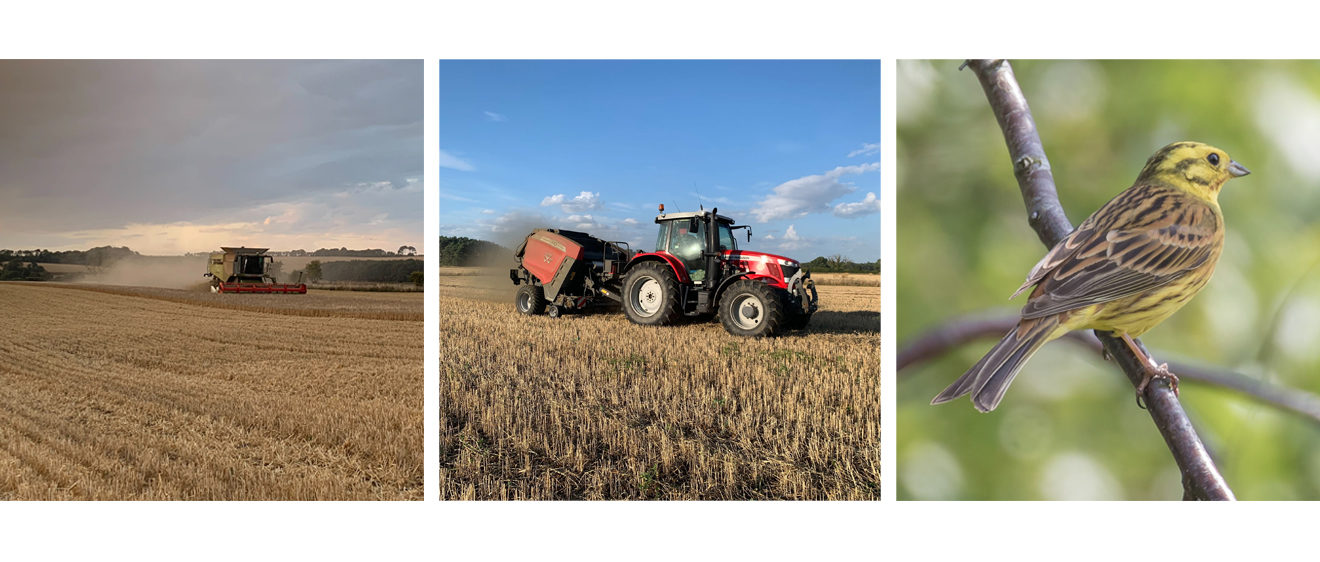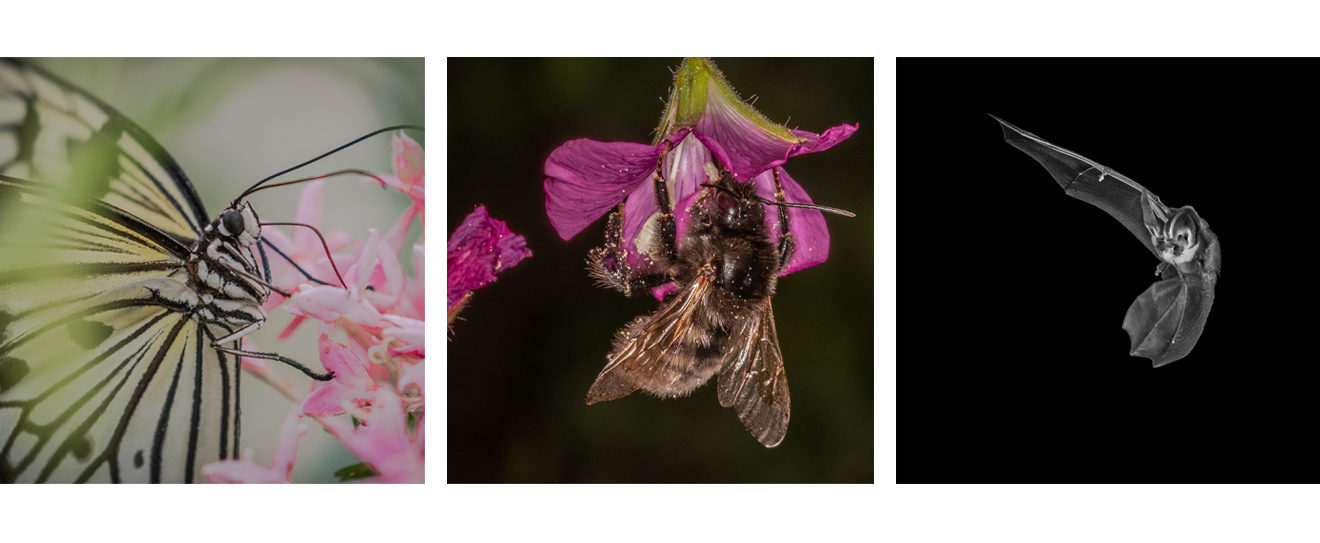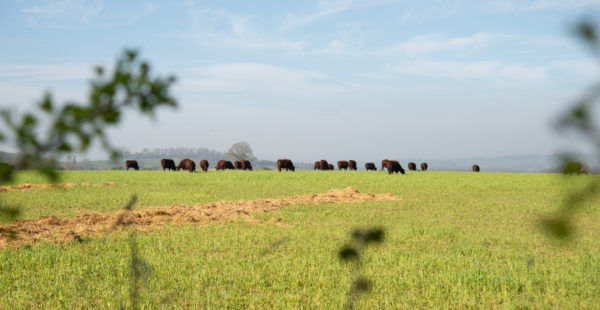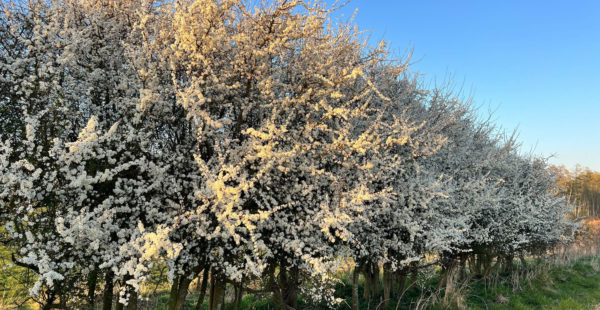A Week on the Estate: Harvest Home, Boosting Pollinators & Organic Progress
We hope you’ve had a productive week in the warm (if frustratingly dry) late-summer weather. We certainly have. Last weekend, we finished off the organic cereal harvest with Michael on the combine and Tom and James on corn-carting. Looking ahead, Tom has been baling straw for winter cattle forage while Richard has been drilling stubble turnips to help feed some of our neighbours’ sheep over winter.
Throughout 2022, we’ve been in-conversion to organic status. With this year’s cereal harvest successfully gathered in, we’re looking forward to being officially organic across our arable and livestock farming from 2023 onwards. Our organic vision has sustainability at its heart; we want our region, its agriculture and its native flora and fauna to thrive together.
We’re therefore proud to support the Pollinator Awareness Conference at the Lincolnshire Showground on Tuesday 11th October. Organised by the Lincoln Colonia branch of the Rotary Club, the event will highlight the drastic and ongoing decline in pollinator numbers and call for positive change across the board, from government policy to farming practices and the way we run our homes and gardens.
According to a recent RSPB report, the use of pesticides in agriculture may be responsible for worrying ripple effects in global insect populations. The number of flying insects recorded in German nature reserves has fallen by 75% since the 1980s, the likely cause being unsustainable farming practices, particularly the extensive use of pesticides. The report estimates that the UK applied pesticides to an area equivalent to 56,000,000 football pitches in 2020 alone.







